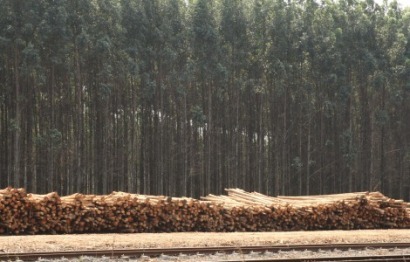
Stuart Campbell, the director of Savills Energy and a biomass and waste-to-energy expert, addressed the All-Energy Conference in Aberdeen this week (21 – 23 May), putting forward the case for a new approach to management of feedstock supply chains. Mr Campbell argued that understanding the implications and security of the widening supply chain will be fundamental to the continued development of viable biomass projects in the UK going forward, especially in the wake of a perceived government U-turn over subsidies.
The biomass sector needs to meet stringent new sustainability and reporting criteria introduced by the government on 1st April this year.
“All generating plants with an output of 1MW and above using solid biomass now have to submit an annual independent audit report which assesses compliance against strict sustainability criteria” Mr Campbell explained. “The greenhouse gas (GHG) lifestyle criteria ensure that biomass delivers savings against fossil fuel while the land use criteria specify that forests are managed sustainably. However, with greater emphasis on the sustainability of feedstock, the supply chain is coming under increasing scrutiny.”
In 2013, the Department of Energy and Climate Change (DECC) commissioned research focusing on the biomass supply chain infrastructure. The study found that the UK power sector will need 23 million tonnes of feedstock by 2020. However, despite significant investment in recent years, the supply chain remains challenging, with costly financial implications in the case of failure.
“Despite the potential impact of a feedstock failure, traditional business interruption insurance does not cover many of the risks a biomass supply chain may face” Campbell added. “This issue has become more acute as heat off-take and the consequential contractual obligations have become more relevant. Indeed, the anecdotal evidence shows that perceived feedstock supply chain risk has been holding back biomass expansion, while the development of new plant has been hindered over concerns around sustainable supply. To keep the biomass sector moving, an innovative approach to supply chain risk is required. Savills has been working closely with the insurance sector to find a solution to de-risk the market and regain the confidence of investors.”
Pre-empting and managing the financial implications of feedstock supply chain failure better and more proactively will act as a catalyst to unlock the potential in new and existing bioenergy projects, Mr Campbell maintains. This will in turn support the UK’s obligations under the Renewable Energy Directive and open up opportunities for job creation and economic growth.
For additional information:

